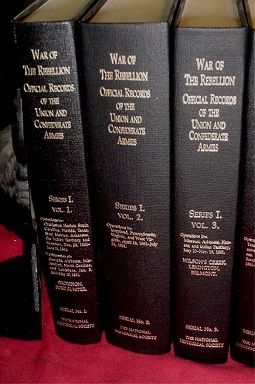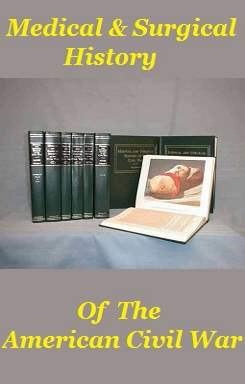Research OnLine Catalog
This book covers the records of the Second SC Infantry Regiment, the Third SC Infantry Regiment, the Eighth SC Infantry Regiment, the Fifteenth SC Infantry Regiment, the Twentieth SC Infantry Regiment and the Third SC Infantry Battalion which composed Kershaw's Brigade.
From the Introduction...
For three reasons, one purely personal (as you will soon see), I am pleased to play even a small part in the reprinting of D. Augustus Dickert's The History of Kershaw's Brigade ... an undertaking in my judgment long, long, overdue.
First, it is a very rare and valuable book. Privately published by Dickert's friend and neighbor, Elbert H. Aull, owner-editor of the small-town weekly Newberry (S.C.) Herald and News, almost all of the copies were shortly after water-logged in storage and destroyed.
Meantime, only a few copies had been distributed, mostly to veterans and to libraries within the state. Small wonder, then, that Kershaw's Brigade ... so long out-of-print, is among the scarcest of Confederate War books--a point underscored by the fact that no copy has been listed in American Book Prices Current in fifty years. Only one sale of the book is recorded in John Mebane's Books Relating to the Civil War (1963), an ex-library copy which sold for $150. More recently, another copy, oddly described as "library indicia, extremely rare," was offered for sale by second-hand dealer for $200. Under these circumstances it is difficult to determine why, amidst the ever-increasing interest in the irrepressible conflict, this unique book has had to wait seventy-five years to make its reappearance on the American historical scene.
My second reason is that, in company with other devotees of the Confederacy, I consider Kershaw's Brigade ... one of the best eye-witness accounts of its kind, complete, trustworthy, and intensely interesting. Beginning with the secession of South Carolina on December 20, 1860, Dickert describes in detail the formation, organization, and myriad military activities of his brigade until its surrender at Durham, N.C., April 28, 1865. During these four years and four months, as he slowly rose in rank from private to captain, Dickert leaves precious little untold. In his own earthy fashion he tells of the merging of the Second, Third, Seventh, Eighth, Fifteenth, and Twentieth regiments and the Third Battalion of South Carolina Volunteer Infantry into a brigade under the command of General Joseph Brevard Kershaw, McLaws' division, Longstreet's corps, Lee's Army of Northern Virginia. First Manassas was the brigade's, baptism of fire. Seven Pines, the Seven Days, Second Manassas, Harper's Ferry, Sharpsburg, Fredericksburg, Chancellorsville, and Gettysburg followed.
And when the enemy began knocking at the back door of the Confederacy in late 1863, it was Longstreet's corps that Lee rushed to the aid of Bragg's faltering Army of Tennessee. After the victory at Chickamauga and a winter in Tennessee, the corps was recalled to Virginia--and to the Wilderness, Spottsylvania, Cold Harbor, Petersburg, and the Shenandoah Valley. Then, once again, as Sherman's mighty machine rolled relentlessly over Georgia and into South Carolina in 1865, Kershaw's Brigade was transferred "back home," as Dickert proudly put it, "to fight the invader on our own native soil." But Kershaw's Brigade ... is much more than a recounting of military movements and the ordeals of battles. It is at once a panorama of the agonies and the ecstacies of cold-steel war. Few such narratives are so replete with quiet, meditative asides, bold delineations of daily life in camp and on the march, descriptions of places and peoples, and--by no means least--the raucous, all relieving humor of the common soldier who resolutely makes merry to-day because to-morrow he may die. Thus, to young Dickert did the routine of the military become alternately matters grave or gay. Everything was grist for his mill: the sight of a pretty girl waving at his passing troop train, the roasting of a stolen pig over a campfire, the joy of finding a keg of red-eye which had somehow fallen--no one knew how--from a supply wagon; or, on another and quite different day, the saddening afterthoughts of a letter from home, the stink of bloated, rotting horses, their stiffened legs pointed skyward, the acrid taste of gun-powder smoke, the frightening whine (or thud) of an unseen sharpshooter's bullet, and the twisted, shoeless, hatless body of yesterday's friend or foe.
E. Merton Coulter, in his Travels in the Confederate States: A Bibliography (1948), called Dickert's "a well-written narrative, notably concerned with the atmosphere of army life," adding that "there is no reason to believe that he embellished the story beyond the general outlines of established truth." Douglas S. Freeman considered Kershaw's Brigade ... a reliable source for both his R.E.
Lee (1934-1935) and Lee's Lieutenants ... (1942-1944), and Allen Nevins et al., in their Civil War Books: A Critical Bibliography (1967), described it as "a full, thick account of a famous South Carolina brigade," alive with "personal experiences of campaigns in both East and West." With these comments I agree. The book is indeed intimate, vigorous, truthful, and forever fresh. But, as I stated earlier, there is a third and personal reason why I am proud to have a hand in the republication of Kershaw's Brigade.... My grandfather, Axalla John Hoole, formerly captain of the Darlington (S.C.) Riflemen, was lieutenant colonel of its Eighth Regiment and in that capacity fought from First Manassas until he was killed in the Battle of Chickamauga, September 20, 1863. (His photograph is inserted in this edition and Dickert's tributes to him are on pages 278, 284-285.) Two days before his death Hoole pencilled his last letter to his wife.
Previously unpublished, it frankly mirrors the esprit de corps of the men of Kershaw's Brigade on the eve of battle. En route from Petersburg to Chickamauga by train, the men of the Eighth Regiment passed through Florence, just ten miles from their homes in Darlington. Upon arrival at Dalton, Ga. on September 18 Hoole wrote "Dear Betsy": I don't know how long we will remain here, so I am hurrying to write you a few lines, with the sheet of paper on my knee to let you know that I am as well as could be expected under [the] circumstances.... I feel pretty well. I heard yesterday that [General W.S.] Rosecrans had fallen back, so there is no telling how far we may have to march or how long it will take before we have a battle here.... Oh, my dear wife, what a trial it was to me to pass so near you and not see you, but it had to be. About 40 of our Regt. stopped, and I am sorry to inform you that all of Company A, except the officers, were left at Florence. That company did worse than any other.... But I know with some it was too hard a trial to pass. There were some, however, who left, who had seen their families in less than a month....
We left our horses at Petersburg to follow us on. I left Joe [his servant] in charge of mine, and I don't know when they will come up.
I feel the need of Joe and the horse, as I can't carry my baggage, and fare badly in the eating line. [We] took our two days rations and went to a house last night to have it cooked, but I can't eat it. The biscuits are made with soda and no salt and you can smell the soda ten steps.... If I can't buy something to eat for the next two days, I must starve.... I made out to buy something occasionally on the way to keep body and soul together.... I must close, as I may not be able to get this in the mail before we have to leave here.... Kiss my dear little ones for me, tell all the Negroes howdy for me.... Write as soon as you get this. Direct it to me at Dalton, as I expect this will be our post office for the present. Do my dear wife don't fret about me. Your ever loving Husband....
D. Augustus Dickert, the author of Kershaw's Brigade ... was born on a farm near Broad River, Lexington County, S.C., in August, 1844, the son of A.G. and Margaret (Dickinson) Dickert, both from nearby Fairfield County. In June, 1861, at age seventeen, he enlisted as a private in Company H, Third Regiment, South Carolina Volunteers, made up of men mostly from Fairfield, Lexington, and Newberry counties.
Wounded four times (at Savage Station, Fredericksburg, the Wilderness, and Knoxville), he was gradually promoted to captain and during the latter part of the war, according to his friend Aull, "he was in command of his regiment acting as colonel without ever receiving his commission as such." After the war Colonel Dickert, as he was best known, returned to his farm, and took an active part in community life, including leadership in the local Ku Klux Klan. Meantime, he read widely to improve his education--as a boy he had attended a country school for only a few months--and by middle-age had become "better educated than many college graduates." Well versed in history, astronomy, and literature, he turned to writing as an avocation, producing numerous stories which were published in the Herald and News and several magazines. One of his stories, A Dance with Death, considered by his contemporaries "one of the most thrilling narratives," was based on true experiences which earned him the reputation of being a "stranger to danger and absolutely fearless." His Kershaw's Brigade ... was written, as he announced, at the request of the local chapter of the United Confederate Veterans and published by Aull "without one dollar in sight--a recompense for time, material, and labor being one of the remotest possibilities." Dickert was married twice. By his first wife, Katie Cromer of Fairfield County, he had four children, Roland, Claude, Alma, and Gussie; and by his second, Mrs. Alice Coleman, also of Fairfield, one child, Lucile, now Mrs. A.C. Mobley of Denmark, S.C.
Dickert died suddenly at his home of a heart attack on October 4, 1917, aged seventy-three, and was buried in Newberry's Rosemont Cemetery.
University of Alabama W. Stanley Hoole





